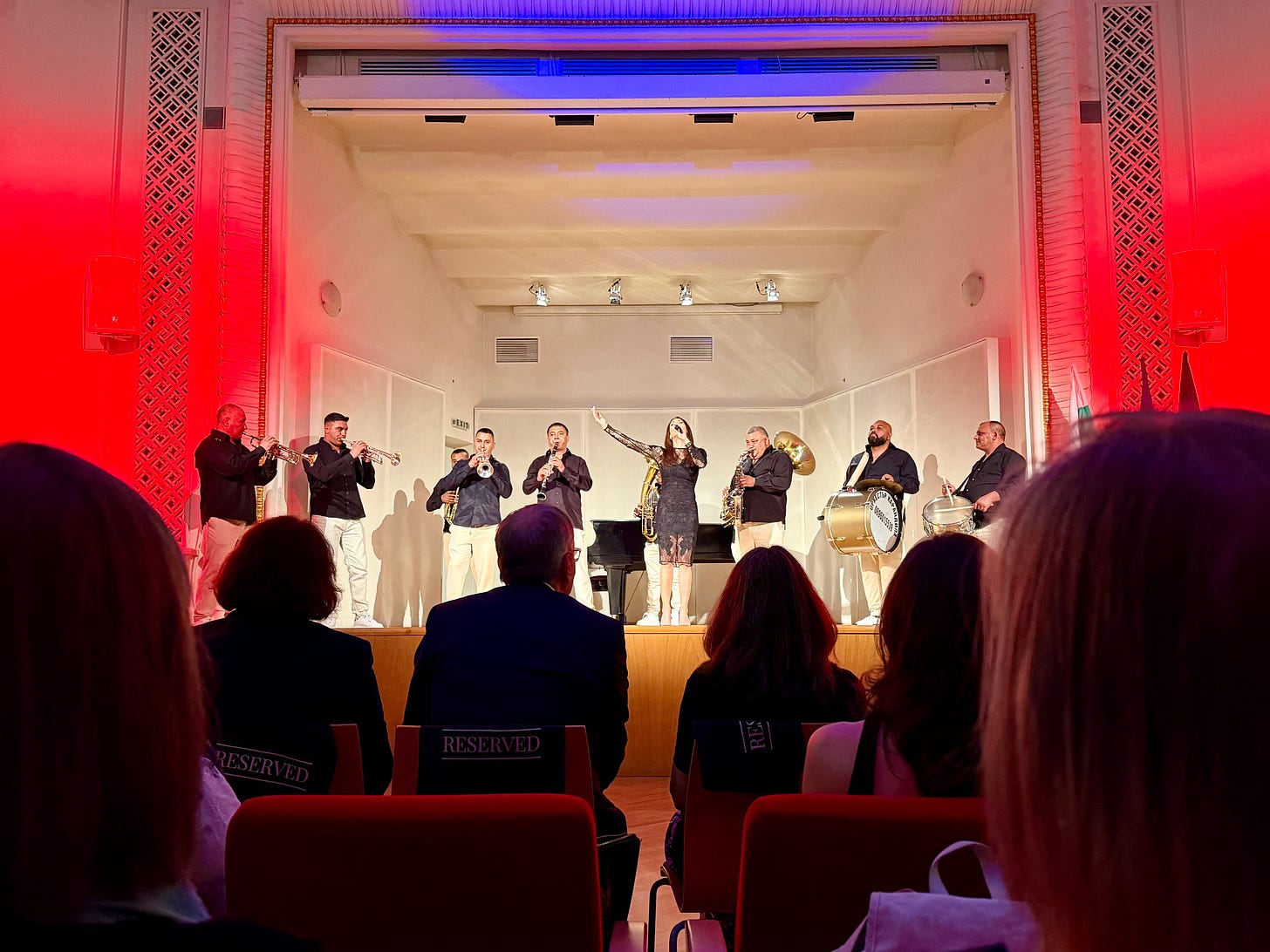Romani culture takes the spotlight at the French Institute
A true cultural event amid political amnesia in Sofia, Bulgaria

In a few days, we will reach the two-month mark since the demolition of my partner Pepi’s Romani quarter. Around 30 people are still living in tents among the ruins. After the heavy spring rains, they are now suffering in the dry heat. The only place to get shade is inside the tents but temperatures inside rise to 40°C (104°F). A few weeks ago the municipality took away the portable toilets, and in the 2 months after the demolition, there have been cases of strokes, pneumonia and other illnesses, including rashes, bruises, and injuries of the children because of the ruins.
“They are being made an example of,” a dear friend and activist said. “So that when other quarters are demolished, the people don’t protest.”
Racist sentiment and remarks skyrocketed after the demolition. Threats of violence, counter-protests agains…


